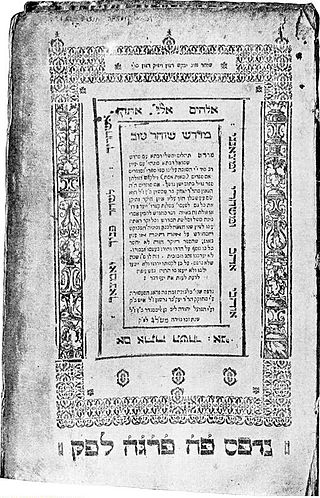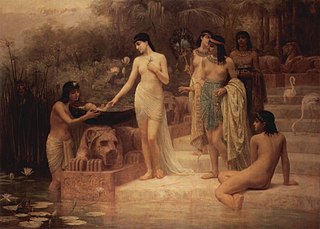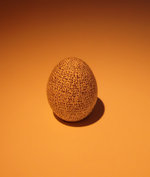Christianity began as a movement within Second Temple Judaism, but the two religions gradually diverged over the first few centuries of the Christian Era. Today, differences of opinion vary between denominations in both religions, but the most important distinction is Christian acceptance and Jewish non-acceptance of Jesus as the Messiah prophesied in the Hebrew Bible and Jewish tradition. Early Christianity distinguished itself by determining that observance of halakha was not necessary for non-Jewish converts to Christianity. Another major difference is the two religions' conceptions of God. The Christian God consists of three persons of one essence, with the doctrine of the incarnation of the Son in Jesus being of special importance. Judaism emphasizes the Oneness of God and rejects the Christian concept of God in human form. While Christianity recognizes the Hebrew Bible as part of its scriptural canon, Judaism does not recognize the Christian New Testament.

Judaism is the oldest Abrahamic religion. Judaism is monotheistic, and widely an ethnic religion. It comprises the collective spiritual, cultural, and legal traditions of the Jewish people, having originated as an organized religion in the Middle East during the Bronze Age. Contemporary Judaism evolved from Yahwism, the cultic religious movement of ancient Israel and Judah, around the 6th/5th century BCE, and is thus considered to be one of the oldest monotheistic religions. Religious Jews regard Judaism as their means of observing the Mosaic covenant, which was established between God and the Israelites, their ancestors. Jewish religious doctrine encompasses a wide body of texts, practices, theological positions, and forms of organization.

Midrash is expansive Jewish Biblical exegesis using a rabbinic mode of interpretation prominent in the Talmud. The word itself means "textual interpretation", "study", or "exegesis", derived from the root verb darash (דָּרַשׁ), which means "resort to, seek, seek with care, enquire, require", forms of which appear frequently in the Hebrew Bible.

Shabbat or the Sabbath, also called Shabbos by Ashkenazim, is Judaism's day of rest on the seventh day of the week—i.e., Saturday. On this day, religious Jews remember the biblical stories describing the creation of the heaven and earth in six days and the redemption from slavery and the Exodus from Egypt, and look forward to a future Messianic Age. Since the Jewish religious calendar counts days from sunset to sunset, Shabbat begins in the evening of what on the civil calendar is Friday.

The Torah is the compilation of the first five books of the Hebrew Bible, namely the books of Genesis, Exodus, Leviticus, Numbers and Deuteronomy. The Torah is known as the Pentateuch or the Five Books of Moses by Christians. It is also known as the Written Torah in Jewish tradition. If meant for liturgic purposes, it takes the form of a Torah scroll. If in bound book form, it is called Chumash, and is usually printed with the rabbinic commentaries.
The Pharisees were a Jewish social movement and a school of thought in the Levant during the time of Second Temple Judaism. After the destruction of the Second Temple in 70 CE, Pharisaic beliefs became the foundational, liturgical, and ritualistic basis for Rabbinic Judaism.
Kohen is the Hebrew word for "priest", used in reference to the Aaronic priesthood, also called Aaronites or Aaronides. They are traditionally believed and halakhically required to be of direct patrilineal descent from the biblical Aaron, brother of Moses, and thus belong to the Tribe of Levi.

Islamic–Jewish relations comprise the human and diplomatic relations between Jewish people and Muslims in the Arabian Peninsula, Northern Africa, the Middle East, and their surrounding regions. Jewish–Islamic relations may also refer to the shared and disputed ideals between Judaism and Islam, which began roughly in the 7th century CE with the origin and spread of Islam in the Arabian peninsula. The two religions share similar values, guidelines, and principles. Islam also incorporates Jewish history as a part of its own. Muslims regard the Children of Israel as an important religious concept in Islam. Moses, the most important prophet of Judaism, is also considered a prophet and messenger in Islam. Moses is mentioned in the Quran more than any other individual, and his life is narrated and recounted more than that of any other prophet. There are approximately 43 references to the Israelites in the Quran, and many in the Hadith. Later rabbinic authorities and Jewish scholars such as Maimonides discussed the relationship between Islam and Jewish law. Maimonides himself, it has been argued, was influenced by Islamic legal thought.
"An eye for an eye" is a commandment found in the Book of Exodus 21:23–27 expressing the principle of reciprocal justice measure for measure. The earliest known use of the principle appears in the Code of Hammurabi, which predates the Hebrew Bible.

Jewish ethics is the ethics of the Jewish religion or the Jewish people. A type of normative ethics, Jewish ethics may involve issues in Jewish law as well as non-legal issues, and may involve the convergence of Judaism and the Western philosophical tradition of ethics.
Adherents of Judaism believe that Jesus of Nazareth was not the Messiah nor "the Son of God". In the Jewish perspective, most will argue that the way Christians see Jesus goes against monotheism, a belief in the absolute unity and singularity of God, which is central to Judaism; the worship of a person is seen by them as a form of idolatry. Therefore, considering Jesus a deity is forbidden according to Judaism. Judaism's rejection of Jesus as the Messiah is based on Jewish eschatology, which holds that the coming of the true Messiah will be associated with events that have not yet occurred, such as the rebuilding of The Temple, a Messianic Age of peace, and the ingathering of Jews to their homeland.

Rabbinic Judaism, also called Rabbinism, Rabbinicism, or Rabbanite Judaism, has been the mainstream form of Judaism since the 6th century CE, after the codification of the Babylonian Talmud. Rabbinic Judaism has its roots in the Pharisaic school of Second Temple Judaism, and is based on the belief that Moses at Mount Sinai received both the Written Torah and the Oral Torah from God. The Oral Torah, transmitted orally, explains the Written Torah. At first, it was forbidden to write down the Oral Torah, but after the destruction of the Second Temple, it was decided to write it down in the form of the Talmud and other rabbinic texts for the sake of preservation.

Shemot, Shemoth, or Shemos is the thirteenth weekly Torah portion in the annual Jewish cycle of Torah reading and the first in the Book of Exodus. It constitutes Exodus 1:1–6:1. The parashah tells of the Israelites' affliction in Egypt, the hiding and rescuing of the infant Moses, Moses in Midian, the calling of Moses, circumcision on the way, meeting the elders, and Moses before Pharaoh.
The Jewish view on birth control currently varies between the Orthodox, Conservative and Reform branches of Judaism. Among Orthodox Judaism, use of birth control has been considered only acceptable for use in limited circumstances. Conservative Judaism, while generally encouraging its members to follow the traditional Jewish views on birth control has been more willing to allow greater exceptions regarding its use to fit better within modern society. Reform Judaism has generally been the most liberal with regard to birth control allowing individual followers to use their own judgment in what, if any, birth control methods they might wish to employ.
The Abrahamic religions are a group of religions, most notably Judaism, Christianity and Islam, centered on the worship of the God of Abraham. Abraham, a Hebrew patriarch, is extensively mentioned in the religious scriptures of the Hebrew and Christian Bibles, and the Quran.
Contemporary debates about animal welfare and animal rights can be traced back to ancient history. Records from as early as the 6th century before the common era (BCE) include discussions of animal ethics in Jain and Greek texts. The relations between humans and nonnhumans are also discussed in the books of Exodus and Genesis, Jewish writings from the 6th or 5th century BCE.
Forbidden relationships in Judaism are intimate relationships which are forbidden by prohibitions in the Torah or rabbinical injunctions.
The firstborn or firstborn son is an important concept in Judaism. The role of firstborn son carries significance in the redemption of the first-born son, in the allocation of a double portion of the inheritance, and in the prophetic application of "firstborn" to the nation of Israel.
Among the books considered to be revealed by God in the Quran, the three mentioned by name are the Tawrat, the Arabic-language name for the Torah within its context as an Islamic holy book believed by Muslims to have been given by God to the prophets and messengers amongst the Children of Israel; the Zabur (Psalms) revealed to Dawud (David); and the Injil (Gospel) revealed to Isa (Jesus). The Quran mentions the Torah, Psalms, and Gospel as being revealed by God in the same way the Quran was revealed to Muhammad, the final prophet and messenger of God according to Muslims.
The earliest known precursor to Hebrew, an inscription in the Paleo-Hebrew alphabet, is the Khirbet Qeiyafa Inscription, if it can be considered Hebrew at that early a stage.









